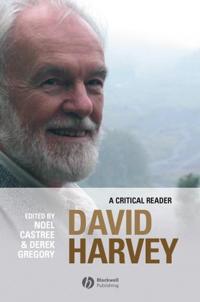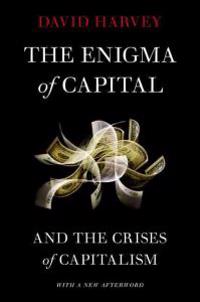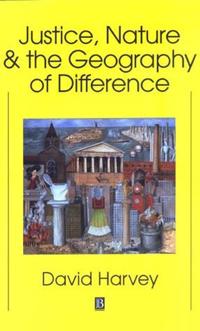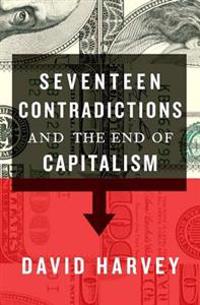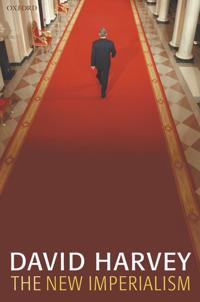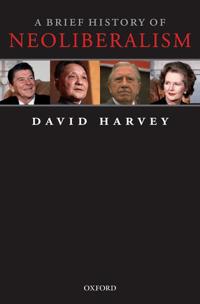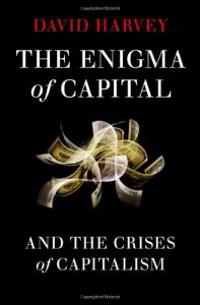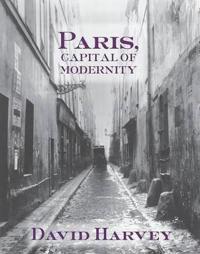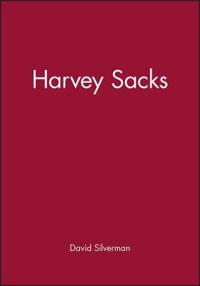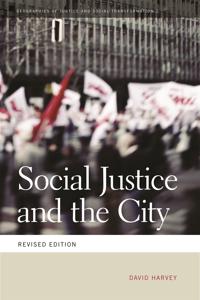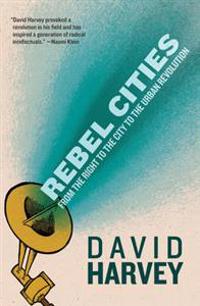David Harvey: A Critical Reader (Häftad)
avDavid Harvey, Noel Castree, Derek Gregory
ISBN: 9780631235101 - UTGIVEN: 200601This book critically interrogates the work of David Harvey, one of the world's most influential geographers, and one of its best known Marxists.Considers the entire range of Harvey's oeuvre, from the nature of urbanism to environmental issues.Written by contributors from across the human sciences, o[...]
The Enigma of Capital: And the Crises of Capitalism (Häftad)
avDavid Harvey, David Harvey
ISBN: 9780199836840 - UTGIVEN: 201109Justice, Nature and the Geography of Difference: An Introduction and Reader (Häftad)
avDavid Harvey, Harvey
ISBN: 9781557866813 - UTGIVEN: 199701This book engages with the politics of social and environmental justice, and seeks new ways to think about the future of urbanization in the twenty-first century. It establishes foundational concepts for understanding how space, time, place and nature - the material frames of daily life - are consti[...]
Song of Middle-Earth, The: J. R. R. Tolkien's Themes, Symbols and Myths (Pocket)
avDavid Harvey
ISBN: 9780008184810 - UTGIVEN: 2016-07-14Seventeen Contradictions and the End of Capitalism (Häftad)
avDavid Harvey
ISBN: 9780190230852 - UTGIVEN: 2015-04The New Imperialism (Häftad)
avDavid Harvey
ISBN: 9780199278084 - UTGIVEN: 200502People around the world are confused and concerned. Is it a sign of strength or of weakness that the US has suddenly shifted from a politics of consensus to one of coercion on the world stage? What was really at stake in the war on Iraq? Was it all about oil and, if not, what else was involved? What[...]
A Brief History of Neoliberalism (Häftad)
avDavid Harvey
ISBN: 9780199283279 - UTGIVEN: 200701Neoliberalism - the doctrine that market exchange is an ethic in itself, capable of acting as a guide for all human action - has become dominant in both thought and practice throughout much of the world since 1970 or so. Its spread has depended upon a reconstitution of state powers such that privati[...]
Seventeen Contradictions and the End of Capitalism (Inbunden)
avDavid Harvey
ISBN: 9780199360260 - UTGIVEN: 2014-04"What I am seeking here is a better understanding of the contradictions of capital, not of capitalism. I want to know how the economic engine of capitalism works the way it does, and why it might stutter and stall and sometimes appear to be on the verge of collapse. I also want to show whythis econo[...]
The Enigma of Capital: And the Crises of Capitalism (Inbunden)
avDavid Harvey
ISBN: 9780199758715 - UTGIVEN: 201009Cosmopolitanism and the Geographies of Freedom (Övrig)
avDavid Harvey
ISBN: 9780231148467 - UTGIVEN: 2009-06-05Liberty and freedom are frequently invoked to justify political action. Presidents as diverse as Woodrow Wilson, Franklin Delano Roosevelt, John F. Kennedy, Ronald Reagan, and George W. Bush have built their policies on some version of these noble values. Yet in practice, idealist agendas often turn[...]
Inclusive Education (Pocket)
avJoanne Deppeler, David Harvey, Tim Loreman
ISBN: 9780415601481 - UTGIVEN: 2010-08-31Paris, Capital of Modernity (Storpocket)
avDavid Harvey
ISBN: 9780415952200 - UTGIVEN: 200512Collecting David Harvey's finest work on Paris during the second empire, "Paris, The Capital of Modernity" offers brilliant insights ranging from the birth of consumerist spectacle on the Parisian boulevards, the creative visions of Balzac, Baudelaire and Zola, and the reactionary cultural politics [...]
David Harvey: A Critical Reader (Övrig)
avEditor:Noel Castree, Editor:Derek Gregory
ISBN: 9780470773581 - UTGIVEN: 2008-04-30Brand Enigma : Decoding the Secrets of your brand (Inbunden)
avDuncan Bruce, David Harvey
ISBN: 9780470779606 - UTGIVEN: 2008-11-30Spaces of Hope (Häftad)
avDavid Harvey
ISBN: 9780520225787 - UTGIVEN: 200003As the twentieth century drew to a close, the rich were getting richer; power was concentrating within huge corporations; vast tracts of the earth were being laid waste; three quarters of the earth's population had no control over its destiny and no claim to basic rights. There was nothing new in th[...]
David Harvey: A Critical Reader (Inbunden)
avEditor:Noel Castree, Editor:Derek Gregory
ISBN: 9780631235095 - UTGIVEN: 2006-02-28Harvey Sacks: Social Science and Coversation Analysis (Häftad)
avDavid Silverman
ISBN: 9780745617114 - UTGIVEN: 199808This volume provides an introduction to Sack's work and reassesses its value for sociology, linguistics, anthropology and psychology. Using a variety of examples, the author explains Sacks's ideas on method, language and "talk-in-interaction".[...]
Spaces of Hope (Häftad)
avDavid Harvey
ISBN: 9780748612680 - UTGIVEN: 2000-01As the twentieth century drew to a close, the rich were getting richer; power was concentrated within huge corporations; vast tracts of the earth were being laid waste: three-quarters of the world's population had no control of its destiny and no claim to basic rights. There was nothing new in this[...]
Social Justice and the City (Häftad)
avDavid Harvey
ISBN: 9780820334035 - UTGIVEN: 200910Throughout his distinguished and influential career, David Harvey has defined and redefined the relationship between politics, capitalism, and the social aspects of geographical theory. Laying out Harvey's position that geography could not remain objective in the face of urban poverty and associated[...]
Buddhism and Ecology (Häftad)
avDavid Harvey
ISBN: 9780945454144 - UTGIVEN: 1998-03Given the challenges of the environmental crisis, Buddhism's teaching of the interrelatedness of all life forms may be critical to the recovery of human reprocity with nature. In this work, 20 religionists and environmentalists examine Buddhism's understanding of the intricate web of life. In noting[...]
Seventeen Contradictions and the End of Capitalism (Inbunden)
avDavid Harvey
ISBN: 9781781251607 - UTGIVEN: 2014-04Seventeen Contradictions and the End of Capitalism (Pocket)
avDavid Harvey
ISBN: 9781781251614 - UTGIVEN: 2015-04-02Rebel Cities (Häftad)
avDavid Harvey
ISBN: 9781781680742 - UTGIVEN: 201304Long before the Occupy movement, modern cities had already become the central sites of revolutionary politics, where the deeper currents of social and political change rise to the surface. Consequently, cities have been the subject of much utopian thinking. But at the same time they are also centers[...]
A Companian to Marx's Capital (Häftad)
avDavid Harvey
ISBN: 9781781681213 - UTGIVEN: 2013-09The biggest financial crisis since the Great Depression shows no sign of coming to a close and Marx's work remains key in understanding the cycles that lead to recession. For nearly forty years, David Harvey has written and lectured on "Capital," becoming one of the world's most foremost Marx schola[...]
Companion to Marx's Capital (E-bok)
avDavid Harvey
ISBN: 9781781683637The radical geographer guides us through the classic text of political economy.';My aim is to get you to read a book by Karl Marx called Capital, Volume 1, and to read it on Marx's own terms'The biggest financial crisis since the Great Depression has generated a surge of interest in Marx's work in t[...]

